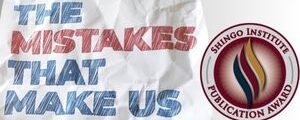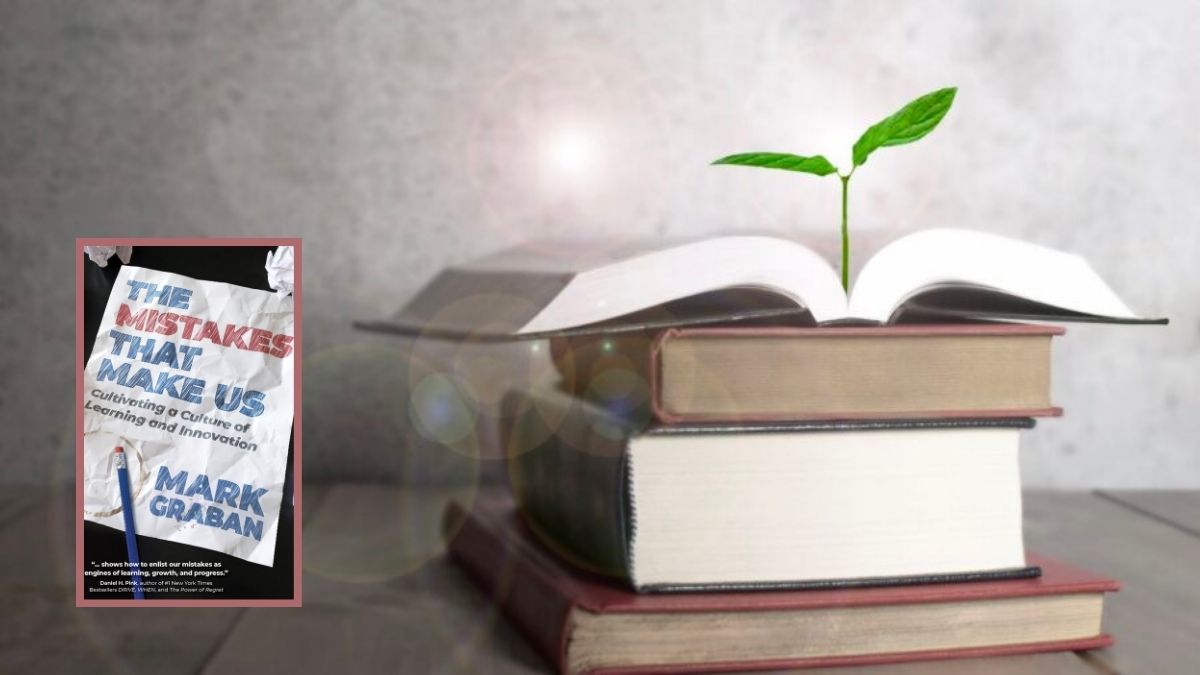In the realm of business and personal development, embracing mistakes is not just about acknowledging errors; it’s about leveraging them as a springboard for growth. The literary world offers a wealth of knowledge on this topic, with authors delving into the psychological, organizational, and practical aspects of learning from missteps. Two notable contributions to this discourse are Mark Graban’s The Mistakes That Make Us and Amy Edmondson’s Right Kind of Wrong.
“The Mistakes That Make Us,” by drawing on real-world examples and insightful analyses, delves into the nuanced ways mistakes can be harnessed to foster a culture of innovation and continuous improvement. It’s not just about celebrating failures in a clichéd manner; it’s about dissecting the anatomy of a mistake to understand its cause, effect, and, most importantly, the lessons it imparts.
Amy Edmondson’s “Right Kind of Wrong” complements this by exploring the concept of psychological safety in the workplace. Edmondson, a renowned expert on organizational behavior, argues that creating an environment where team members feel safe to take risks and make mistakes is crucial for innovation and learning. Her book is a call to action for leaders to build a culture where the ‘right kind of wrong’ is not only accepted but encouraged as a means of progress.
Both books converge on the idea that making mistakes is inherent to human nature and that the response to these mistakes shapes personal and organizational trajectories. They offer a blueprint for constructing a mindset and a framework where mistakes are not seen as career-enders but as career-benders, redirecting paths towards greater achievements.
For those seeking to harness the positive power of mistakes, these books are essential reading. They not only change our relationship with failure but also equip us with strategies to emerge from setbacks stronger and more resilient than before. Whether you’re a seasoned leader, a team member, or an individual on a personal journey of improvement, the wisdom contained in these pages is invaluable for anyone looking to grow through their missteps.
Embracing mistakes for growth is not a passive process; it requires active engagement, reflection, and a willingness to challenge conventional wisdom. “The Mistakes That Make Us” and “Right Kind of Wrong” serve as beacons on this journey, illuminating the path forward with their profound insights. They remind us that the most potent learning often comes from the unexpected and the unplanned — from the mistakes that, if navigated correctly, indeed make us.
Alongside The Mistakes That Make Us and Amy Edmondson’s Right Kind of Wrong, several other books provide valuable insights into embracing and learning from errors.
“Black Box Thinking” by Matthew Syed is a seminal work that investigates the attitudes towards failure in various contexts, from aviation to the healthcare industry. Syed emphasizes the importance of learning from mistakes rather than covering them up, using the ‘black box’ in aviation as a metaphor for transparency and growth.
In “Failing Forward: Turning Mistakes into Stepping Stones for Success,” John C. Maxwell takes a more personal approach, encouraging individuals to reframe their view of failure. Maxwell suggests that the key to success is not in never failing, but in learning how to fail well.
“Mindset: The New Psychology of Success” by Carol S. Dweck delves into the distinction between a ‘fixed’ mindset and a ‘growth’ mindset. Dweck’s research shows that those with a growth mindset, who believe that abilities and intelligence can be developed, are more resilient and open to learning from mistakes.
Another notable mention is “Being Wrong: Adventures in the Margin of Error” by Kathryn Schulz, which explores why society is conditioned to perceive being wrong as something negative. Schulz argues that the aversion to error is limiting and that there is a profound value in the recognition and acceptance of our fallibility.
Lastly, “The Gift of Failure: How the Best Parents Learn to Let Go So Their Children Can Succeed” by Jessica Lahey offers a perspective on the importance of mistakes in the context of parenting and education. Lahey highlights how allowing children to make and learn from mistakes is essential for their development into successful, resilient adults.
Collectively, these books form a comprehensive guide on the multifaceted nature of mistakes. They each offer unique perspectives on how to approach errors constructively, whether in personal life, within organizations, or as part of broader societal norms.
By exploring these titles, readers can equip themselves with a diverse toolkit for converting setbacks into growth. They underscore a shared message: that the most significant advancements are often achieved not in spite of our mistakes but because of them.
For those ready to transform their relationship with failure and to cultivate a mindset that thrives on the lessons of experience, these books are invaluable companions. They serve as a testament to the power of persistence, learning, and the unfailing human spirit.
- “Black Box Thinking” by Matthew Syed
- “Failing Forward: Turning Mistakes into Stepping Stones for Success” by John C. Maxwell
- “Mindset: The New Psychology of Success” by Carol S. Dweck
- “Being Wrong: Adventures in the Margin of Error” by Kathryn Schulz
- “The Gift of Failure: How the Best Parents Learn to Let Go So Their Children Can Succeed” by Jessica Lahey
Explore “The Mistakes That Make Us”



